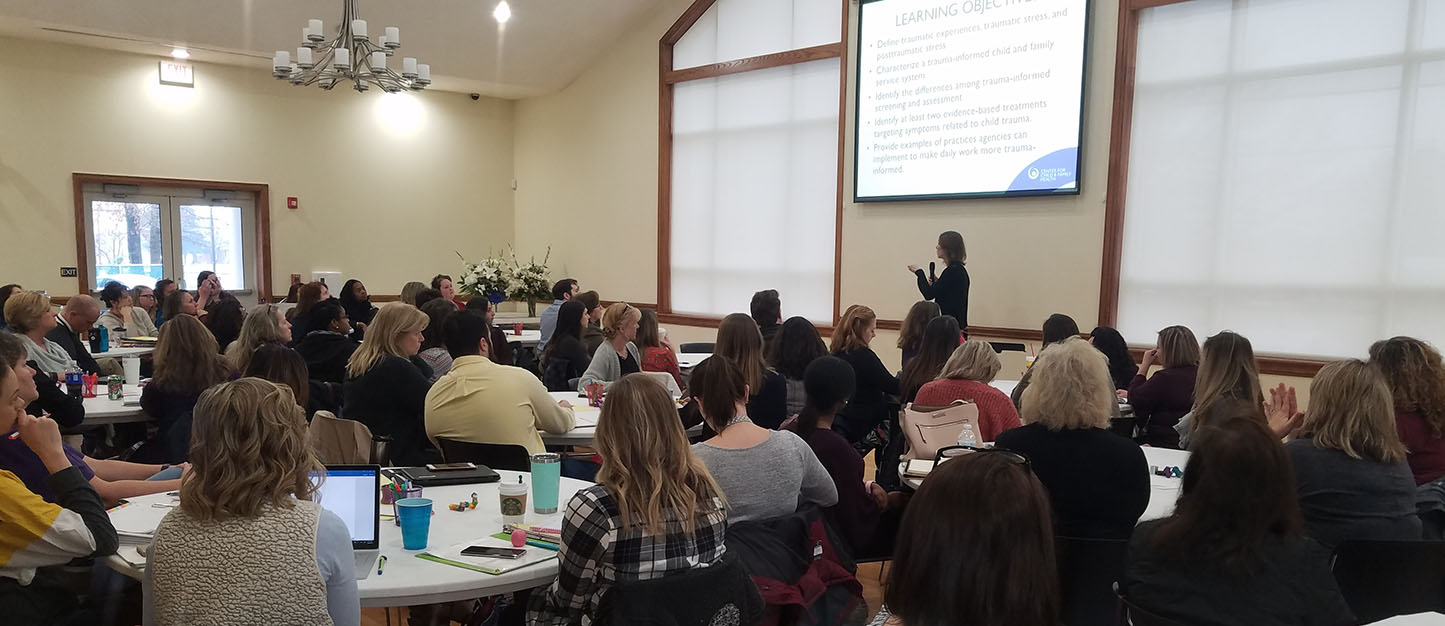Sometimes, adjusting the lens through which you see the world brings problems – and solutions – into much clearer focus.
Vaya Health is working with school districts, community groups, local agencies, providers and families to help others see life through a lens informed by the study of trauma, particularly childhood trauma. Recent efforts have centered on Caldwell County, which was selected in January to participate in the state’s Trauma-Informed Communities Initiative.
“It’s almost a switch flipped,” said Vaya Family Partner Mary Lloyd, who is based in Lenoir. “Parents tell me, ‘I remember experiencing such and such in my own childhood.’ And they look at me and say, ‘The way I was brought up has impacted my parenting style, and I want to learn more.’”
The new initiative, led by the N.C. Department for Health and Human Services and the Center for Child & Family Health, runs through June and includes education, outreach and a community needs assessment. On Feb. 20, Caldwell County Schools staff, providers and other professionals participated in a free, full-day training to learn about effective practices and evidence-based treatments.
The goal is to better understand trauma’s long-term impact and to improve health, educational outcomes, family functioning and community wellbeing. Vaya is helping bring systems together, supporting trainings and site visits, strengthening System of Care values and linking residents to treatment resources.
Why focus on trauma?
Everyone has experienced trauma, said Vaya Community Educator Ashley Cole.
“Trauma is different for everyone,” Cole said. “What affects one person greatly may not affect another person as much, and vice versa. It’s anything that hurts the ability to cope in that moment, anything that is overwhelming to the nervous system, no matter what it is. There’s a common misperception that ‘some things’ shouldn’t bother you, but that’s not true.”
It’s been nearly two decades since the original Adverse Childhood Experiences (ACEs) Study, which found that childhood stress and trauma harm health and wellbeing later in life. The study initially looked at 10 types of trauma, including abuse, neglect and abandonment. Other traumas may include racism, bullying, losing a caregiver, homelessness or involvement with the foster care or juvenile justice systems.
Meanwhile, suicides among older children in North Carolina have steadily increased over the past decade, with suicide now the leading cause of death of youths ages 10 to 17.
Since the ACEs Study, the brain science surrounding the mental, physical and emotional impact of trauma has exploded, Cole said. Applying a trauma-informed lens entails asking questions such as “What’s your story?” or “What happened to you?” instead of “What’s wrong with you?” Using that approach, for example, could allow a teacher to better understand the reasons behind a student’s behavior and offer more effective support.
Lloyd, who is also vice-chairwoman of the Child Collaborative of Caldwell County, said access to professional behavioral health services is critical. But she’s also seeing more parents and communities step up to learn what needs to change.
“That moves the community from the perspective of ‘what parents need to do’ to the action stage of, ‘What do we need to do? How can we help parents and help them create healthier environments for their children? How can we help our students in the classroom and support our teachers?’”
It also turns the conversation toward building resiliency – and we can all help one another, Cole said.
“As much as trauma affects people, think of protective factors,” she said. “If you are a strong person in someone’s life, if you can help them in a dark time, then you are that protective factor. You can build resilience in the world around you and in your community.
“We are not just our trauma. But it takes people recognizing my trauma and helping me that can allow us to build resiliency in our communities and ourselves.”
For more information, check out Trauma Resilience Resources from the Substance Abuse and Mental Health Services Administration (SAMHSA).



